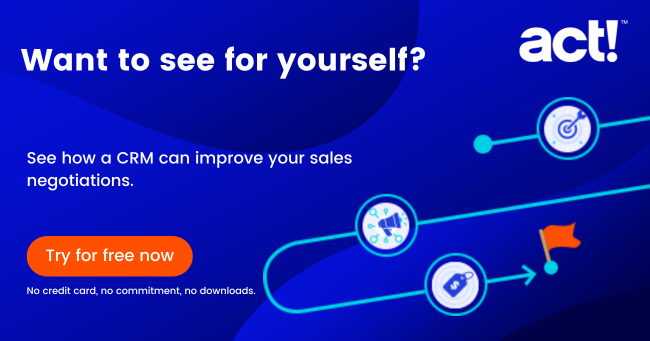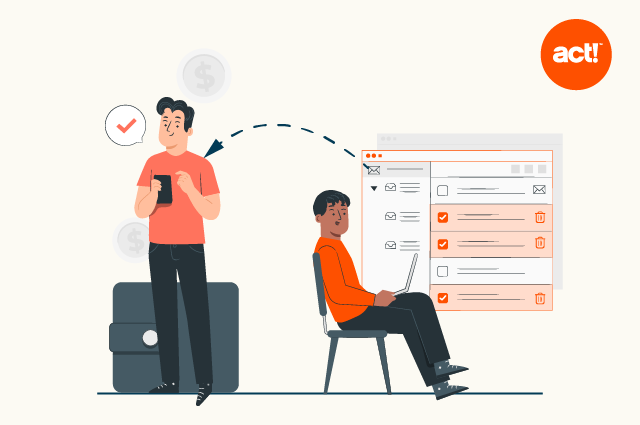
Imagine you take your kid to an amusement park. They want to get on the roller coaster, but you think it might be overwhelming for a 10-year-old. You suggest the carousel, but your child says it’s no longer fun. After some light-hearted debate, both of you reach a common ground and settle on the Ferris wheel.
Now, replace the kid with a new lead. Here’s how the selling process would pan out. They ask for a discount, but your profit margins are already tight. Instead of a concession, you offer a flexible payment schedule and throw an extended warranty into the mix. The client happily accepts the offer while you manage to maintain profitability. Both scenarios involve problem-solving and engaging in a series of negotiations, often exploring alternative solutions to arrive at a win-win outcome for all parties.
When implemented properly, sales negotiation strategies don’t just help drive more conversions. They minimize friction in the purchase experience and strengthen customer relationships.
But how do you master these sales negotiation tactics? In this article, we’ll take a closer look at must-have sales negotiation skills and strategies for small businesses.
The value of negotiation skills for small businesses
Research shows that businesses with a systematic sales negotiation process experience 42.7 percent more growth in the bottom line than those without a concrete sales strategy. That makes negotiation all the more important for small businesses with tight profit margins and cash flow constraints.
However, the benefits of a successful negotiation aren’t restricted to profitability. A well-defined negotiation process ensures clear communication between prospects and sales reps, so conflicts and misunderstandings don’t spiral out of control.
Plus, it helps build a good rapport with buyers and allows you to win their trust. Even if you don’t close a deal right away, you can keep in touch for future purchases and referrals.
Essential sales negotiation skills for small businesses
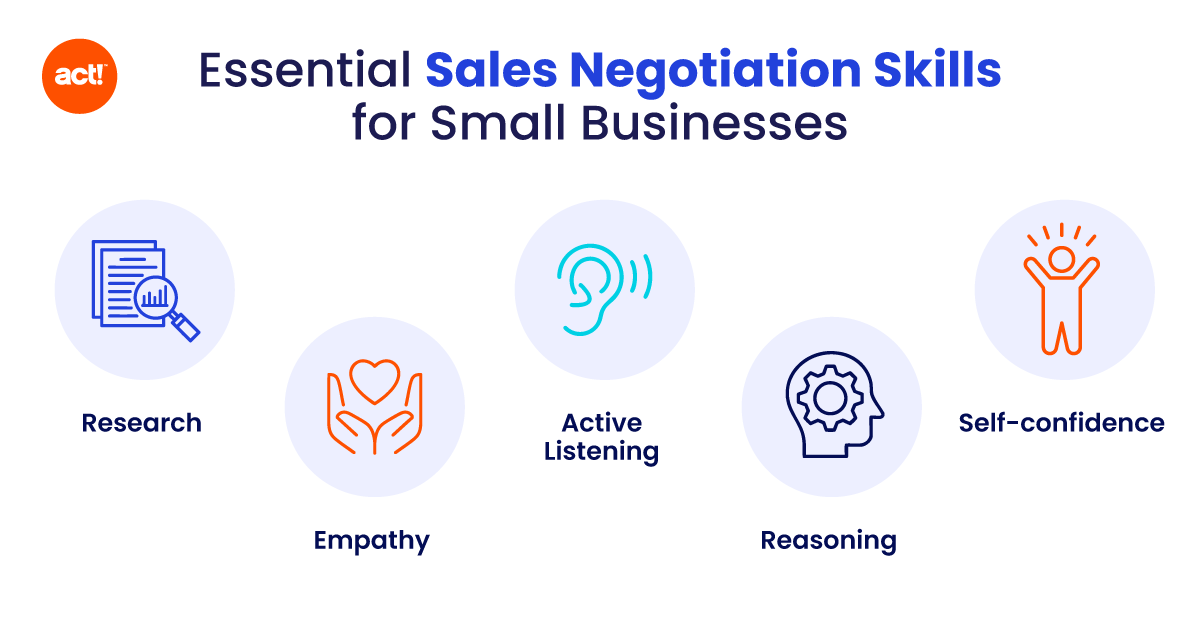
Some salespeople are born with a flair for negotiation. Don’t be disheartened if you’re not one of them. With the right skills, you can still excel at sales and drive favorable outcomes for your company.
Whether you’re a sales manager or a small business owner, the following skills are crucial for effective negotiation:
- Research: Preparing for a negotiation involves gathering detailed information about your industry, competitors, target market, and the buyer’s requirements.
- Empathy: Put yourself in the buyer’s shoes to understand the other party’s needs, pain points, concerns, and constraints. It’s the key to making them feel valued and building trust.
- Active listening: Listen fully to what buyers say during conversations to identify their hidden needs and challenges. Ask questions and summarize their answers to ensure you have a clear understanding of their concerns.
- Reasoning: Use persuasive arguments to convince a buyer that your product/service is exactly what they need. Counter their objections with logic (and supporting data) instead of getting flustered.
- Self-confidence: It’s impressive and reassuring to see a confident negotiator. Use body language, tone, and vocabulary to assert your points without being aggressive.
How to master the art of sales negotiation
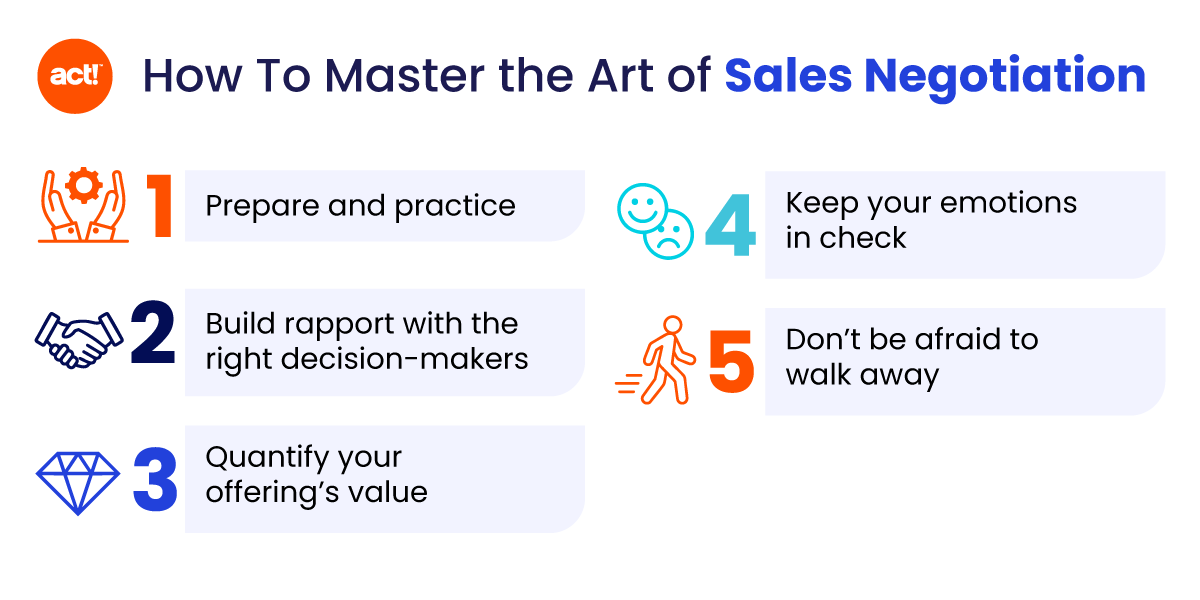
Developing top-notch negotiation skills is the first step you must take as a sales professional. However, you also need a solid negotiation strategy for closing deals and building lasting relationships.
Here are a few tips for effective communication and negotiation:
1. Prepare and practice
Successful negotiations begin long before you sit down with the buyer. Start with a thorough preparation of their expectations, pain points, budget constraints, and other concerns.
A customer relationship management application can be a valuable tool for getting a complete picture of each prospect’s needs.
While you’re at it, get a firm grasp of your product/service offerings, particularly what makes them stand out. Understand your pricing structure and the maximum concessions you can offer. Figure out perks, such as extended warranties, premium support, and freebies, that you can offer in lieu of discounts.
Additionally, anticipate counterarguments, objections, and questions and devise a plan to address them. You should also create a list of open-ended questions to ask during the conversation to better understand their goals and expectations.
Finally, rehearse your pitch with coworkers to build confidence and identify areas of improvement.
2. Build rapport with the right decision-makers
You don’t want to waste your time and effort negotiating with someone without decision-making power. When researching buyers, look for key players who have the authority to finalize a deal. Use your CRM platform to dig deeper into their goals and priorities and personalize your pitch accordingly to build long-term partnerships.
3. Quantify your offering’s value
When it comes to demonstrating your product/service’s value, let the numbers do the talking. Use case studies and customer success stories to show the buyer how your offerings have benefited other clients. Whenever possible, use data to reinforce these benefits.
How did your product affect the client’s bottom line? Was the cost of implementation lower than what they would’ve incurred with a competitor’s product? If they streamlined a task using your product, what did the efficiency gains look like?
All that data can make a compelling case for your value and give you an upper hand in the negotiation.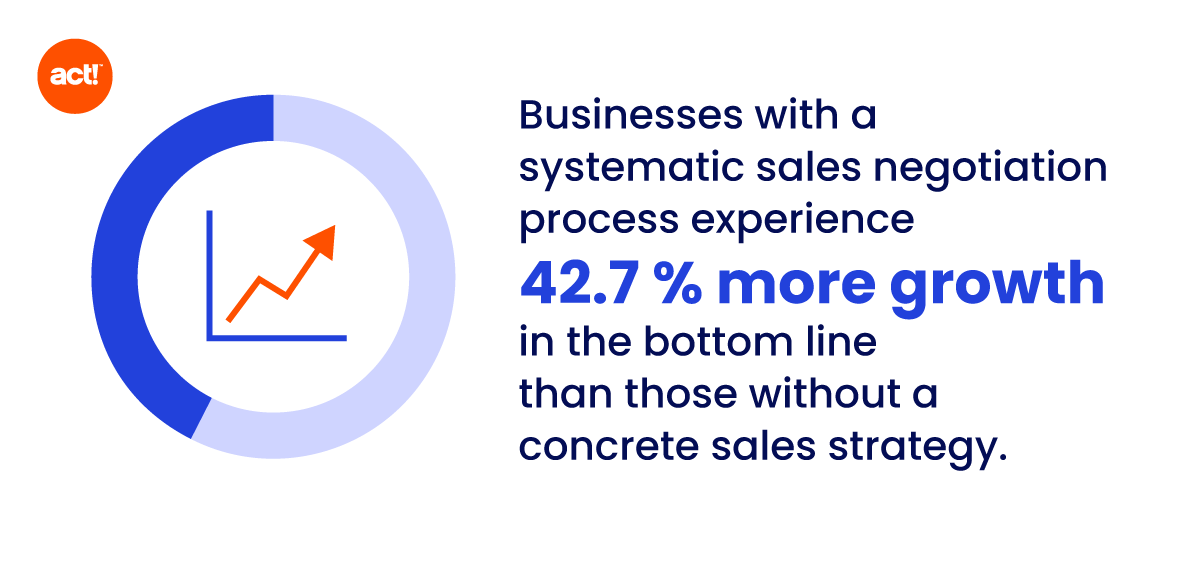
4. Keep your emotions in check
Sometimes, a sales negotiation turns into a heated argument. Buyers can catch you off guard with their demands and objections—and you might not have the answers to all their questions.
For effective negotiation, it’s crucial to keep your cool in these high-pressure situations. Take a break (and a few deep breaths) and resume the conversation with a positive attitude. Acknowledge the buyer’s concerns and try to find mutually beneficial outcomes.
5. Don’t be afraid to walk away
Go into each negotiation knowing that it may not result in a sale. One of the biggest sales hacks is to chase the right leads. It seems counter-productive, but it’s better than focusing your energy on closing a deal that may not go through.
For instance, you might realize that your offerings don’t fit the buyer’s current goals. Or their budget might be way below your best price. Alternatively, the buyer could be making unrealistic demands that you just can’t fulfill.
Identify your best alternative to a negotiated agreement (BATNA), and don’t hesitate to walk away when a deal can’t be reached.
Up your sales negotiation game with Act!
In the battleground of sales, negotiation techniques are your biggest ally. Developing skills like empathy, active listening, and self-confidence can help you sway sales negotiations in your favor. Take your time to research the buyer and prepare a killer negotiation pitch tailored to their needs and priorities.
With Act! CRM, you can create a single source of truth for buyer details, including their purchase habits, service history, and more. Start your free trial and see how Act! can help you prepare for sale negotiations.